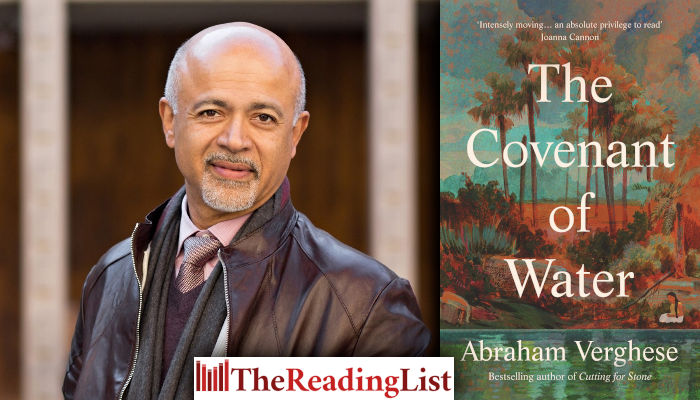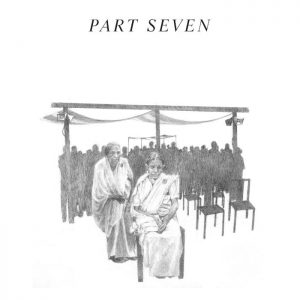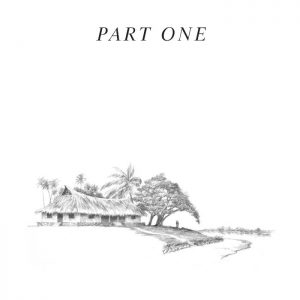‘Most families are bound not just by blood but by secrets’ – Abraham Verghese on his masterful new novel The Covenant of Water
More about the book!

From Abraham Verghese, author of the bestselling novel Cutting for Stone, comes a stunning and magisterial new epic of love, faith and medicine, set in Kerala and following three generations of a family seeking the answers to a strange secret.
Verghese, who is also a talented physician, talks about The Covenant of Water, and where he drew inspiration from for this masterful novel.
‘My family hails from a small but ancient Christian community that has its roots in the arrival of St Thomas on the ‘spice coast’ of India in 52 AD.’
I’ve always been intrigued by the kind of novels that drew me to pursue medical training; novels that portray medicine the way I experienced it, as a noble and romantic pursuit, a grand adventure. I’m thinking of books like The Citadel by AJ Cronin, and Arrowsmith by Sinclair Lewis, which drew me to medicine.

I wanted my first novel, Cutting for Stone, to be in that genre, and it was set in the land of my birth, Ethiopia. The setting this time is not Africa, but south India (with a short trip to Glasgow). My family hails from a small but ancient Christian community that has its roots in the arrival of St. Thomas on the ‘spice coast’ of India in 52 AD – which is present day Kerala. I spent idyllic summer vacations with my grandparents in what seemed like a fantasy land of lagoons, lakes, streams, and rivers, with coconut trees forming a fringe on the horizon in every direction. Years later, I returned to India to study medicine in Madras.
I’ve called on many of my mother’s stories that she told her three sons (and she retold many times, the details often merging with other stories. My late mother, Mariam Verghese, was an incredible storyteller and a gifted artist. Late in her life, her first granddaughter, who is also her namesake, said to her, ‘Ammachi, what was life like when you were a little girl?’ In response, my mother, then in her seventies, with remarkably elegant penmanship, wrote a forty-page manuscript, complete with quick sketches that are nevertheless clever and illuminating. Her hand-drawn family tree and the many anecdotes she strung together were familiar to me, though they were altered and sometimes embellished from what I recalled as a child. In this novel I draw on some of those stories and that is why The Covenant of Water is dedicated to my mother.
I also called on my own observations as a child and as a teenager and adult seeing the conflict and contrast between the rich and the poor in Kerala, the struggle for caste equality, and especially the unique nature of the community of Christians in Kerala, a community who (as legend has it) formed when Saint Thomas the apostle – ‘doubting Thomas’ – arrived on the coast of Kerala on one of the dhows from Arabia that plied back and forth carrying spices to be sold at a hundred-fold mark up in the markets of Europe.

So what is The Covenant of Water about? Well, it has love, faith, family, and medicine in it. (And after all, what is medicine but life?) Most families are bound not just by blood but by secrets. The Parambil family of Covenant has a secret (that isn’t all that secret): In every generation, going back seven, at least one member has drowned unexpectedly, be it in a puddle, a shallow pond, a stream, or a river – shocking, because these are individuals who studiously avoid water. The ‘Condition’ (as the family calls it) seems to be inherited, a familial disorder.
It’s also about love: love that uplifts and enhances, unrequited love, love that destroys, love that is lost, misguided love, and ultimately, love that gives redemption. I won’t say more lest I give too much away, but the tale begins in 1900 and ends in the 1970s.
The Covenant of Water has been a long time in the making, not just because it is ambitious in its scope and inherent intricacies, but also because I have a fulfilling day job as a doctor and teacher of medicine that feels to me connected in an umbilical fashion to the act of writing and creating at night. The day job was never more challenging than when Covid arrived; the prevailing emotion I felt – that of finding meaning in a world where there is much suffering – no doubt infuses the book.
I hope you find The Covenant of Water to your liking. I feel quite blessed to put it in your hands.
~~~
The Covenant of Water is out now.
This article was originally published in The Penguin Post, a magazine about books for book lovers from Penguin Random House South Africa.
Categories Fiction International
Tags Abraham Verghese Interviews Penguin Random House SA The Covenant of Water The Penguin Post
